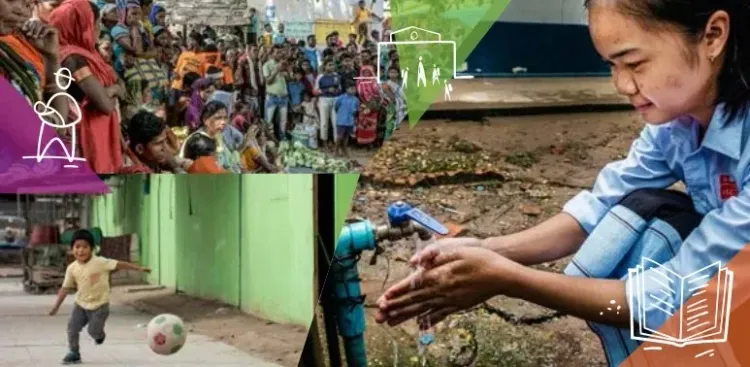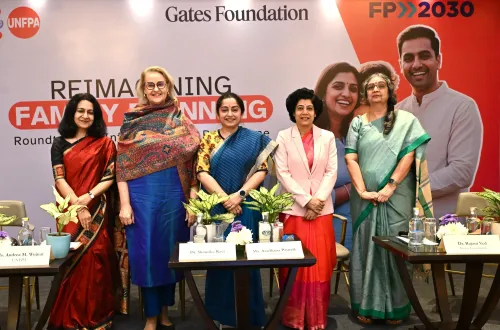Are Health Inequities Leading to a 30-Year Life Shortening in Poor Nations?

Synopsis
Key Takeaways
- Inadequate social determinants of health can reduce life expectancy by over 30 years.
- Children in poorer countries face a 13 times greater risk of dying before age 5.
- Women from disadvantaged groups are at higher risk for pregnancy-related deaths.
- Approximately 3.8 billion people lack adequate social protection coverage.
- Closing health equity gaps could save 1.8 million children's lives annually.
New Delhi, May 6 (NationPress) A recent global report from the World Health Organization (WHO) reveals that inadequate social determinants of health are causing individuals in impoverished nations to lose over 30 years of potential life expectancy. Social determinants of health refer to the environments where people are born, raised, live, work, and age.
The findings indicate that issues beyond healthcare, such as insufficient access to quality housing, education, and employment opportunities, severely impact healthy life expectancy.
According to the report, individuals in countries with the lowest life expectancy are likely to live 33 years less than those in nations with the highest life expectancy.
It was noted that children born in less affluent countries face a staggering 13 times higher risk of dying before reaching the age of five compared to their counterparts in wealthier nations.
Women belonging to marginalized groups are also at an increased risk of dying due to pregnancy-related complications.
Dr. Tedros Adhanom Ghebreyesus, the Director-General of WHO, stated, “Our world is marked by inequality. The circumstances of our birth, growth, living, working, and aging have a profound impact on our health and overall well-being.”
He emphasized that tackling the interconnected social determinants is essential.
The report further highlighted that approximately 3.8 billion individuals globally lack adequate social protection, such as paid sick leave or child benefits, adversely affecting their health outcomes.
Struggling under significant debt, governments in the poorest nations are unable to invest in essential services, resulting in a four-fold increase in interest payments over the last decade.
Alarmingly, the report provided “sufficient evidence” suggesting that health disparities within nations are often growing.
Efforts to bridge the gap and improve equity between the wealthiest and poorest demographics in low- and middle-income nations could potentially save 1.8 million children’s lives each year, according to modeling studies.
The report also outlines data-driven strategies and policy suggestions for nations to enhance health outcomes for all.
The WHO underscores that addressing income disparity, systemic discrimination, conflict, and climate change is crucial to overcoming entrenched health inequities.









